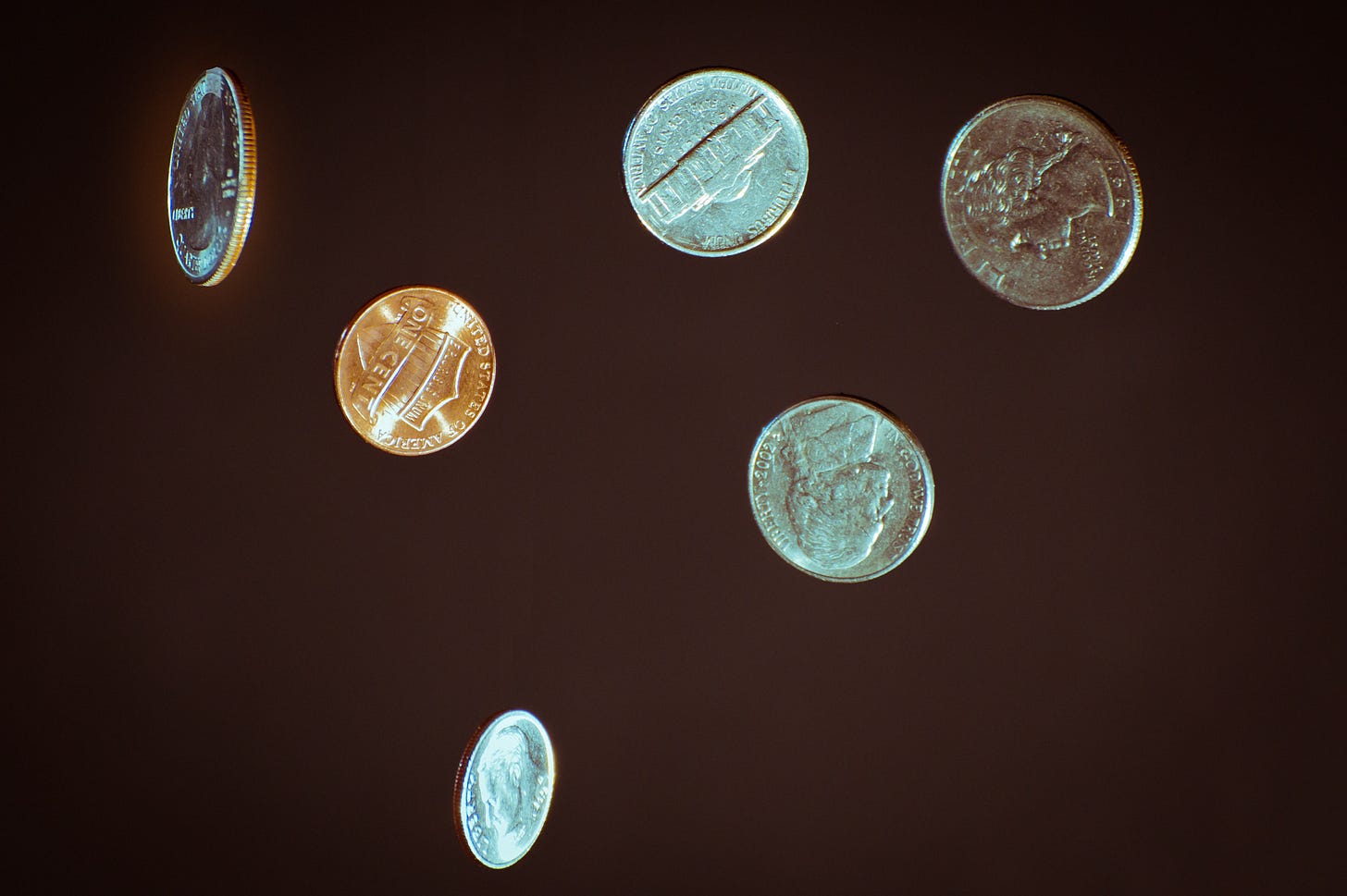An Idea: The Economics of Courage
How economics can help us become aware of how Courage operates in our lives

Courage—the practice of moving toward yourself—is the most efficient way to get fulfillment in your life.
Courage expands what’s possible for your life in the shortest amount of time with the least effort. In that sense, it’s the most productive action you can take for yourself.
And yet, we naturally avoid our own Courage.
We’ve already talked about some significant barriers to Courage—your fear, listening to yourself, seeing yourself as Courageous—but I find myself drawn to economics as an additional lens to examine what keeps us from Courage.
Before you run away at the sound of “economics”, stay with me.
I’m not an economist by training, but I remember learning about microeconomics and behavioral economics in business school. What I appreciated about economics then—and what I’m drawn to now as it relates to Courage—is its ability to help us make sense of the everyday yet seemingly opaque decisions we face.
Here are some of the ideas I’m contemplating right now:
1. Courage is bound by the same economics as any other type of decision we make.
We tell ourselves a myth that Courage emerges magically from a place of personal strength, but nothing pulls Courage off its pedestal faster than running it through our very tangible economic machinery and sensibilities. Courage isn’t a mysterious force immune to the economic reality of our lives—in fact, quite the opposite.
Our Courage is strongly informed by economics, having everything to do with our own relationships to risk, reward, power, security, and money. These are real, everyday concerns for all of us.
When we recognize that Courage plays in this land of economic concerns, we can then choose relationships to risk, reward, power, security, and money that support (rather than diminish) our ability to move toward ourselves.
2. As we consider being Courageous, we’re rational actors that weigh the risks and rewards of our options.
Traditional economics will tell us that we’re constantly calculating risks and rewards to make rational decisions in our own best interest. We do this as we consider our own journeys of Courage, too.
Sometimes we seek financial security, like building a financial cushion if we’re going to leave our job or romantic partner. Sometimes we seek other types of security, like ensuring we have the support of our closest friends before we take a stand for justice.
Courage doesn’t just wondrously appear one day. At the point we can suitably minimize our risks and maximize our rewards, we move forward with Courage.
3. But we’re also irrational actors that are loaded with cognitive biases.
Following prospect theory (developed by Amos Tversky and Nobel Prize-winning cognitive psychologist Daniel Kahneman), we tend to overvalue what we’ll lose compared to what we might gain. The theory proposes that the emotional impact of what we’ll lose is greater than an equivalent amount of gain.
Courage often pays the price for this bias—and many other cognitive biases. Before we make the leap of Courage, we often wrestle with very real or even imagined losses—some of them economic in nature. When the fear of a loss is present, it often overpowers what we might gain from being Courageous and dominates our decisions.
4. There are real systemic forces that pull strongly for conformity (the anti-Courage).
Our economy, institutions, and culture are loaded with policies that guide our own decision-making around Courage. Many of those policies pull for us to fit in, and create outsized risk for racialized and marginalized people.
More broadly, a harsh truth of being a Capitalist society is that we’re raised and educated as labor, meant to fill jobs. Our default is to be pointed where the economy and society want us, rather than where we want to be. In that sense, stepping into Courage is often a stand against the systemic forces of conformity.
As someone trying to put Courage in our hands so we can cultivate more of it, economics feels like a powerful way to ground Courage and illuminate how it operates in our lives.
But the point here isn’t that economics can block us from Courage. The point is that we can become aware of that fact, rather than being blind to it. And with that awareness, we can begin to shape our choices and our environment to mitigate those economic limitations.
- Elliot
✍️ Comment with Courage
In past editions, I’ve encouraged folks to reflect or journal privately on these questions. But since I’m aiming to create a community here, feel free to comment right on this post. Let’s talk about it together.
Some prompts:
As you see your decisions around Courage through an economic lens, what becomes more visible to you?
Knowing we all have irrational biases impacting our decisions to be Courageous, what strategies could help you move toward yourself with more ease?
What other “lenses” could you apply to Courage to help you ground and illuminate it?
🙏 Would you do me a favor…? If you’ve been reading along so far, I’d love to hear your feedback.
What are you loving and what are you wishing for? How do you feel about the level of insight that’s presented and the format? Is it inspiring you to become more Courageous in any way? If not yet, what would help?
Add a comment or email me.



